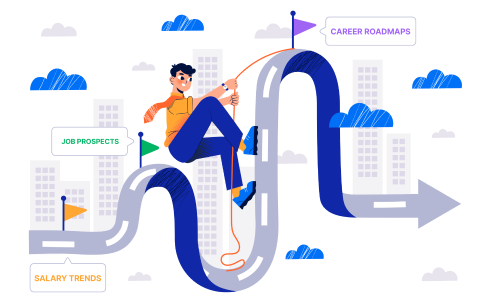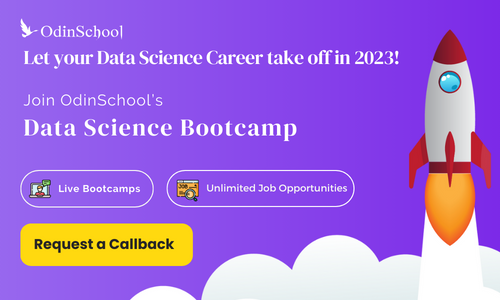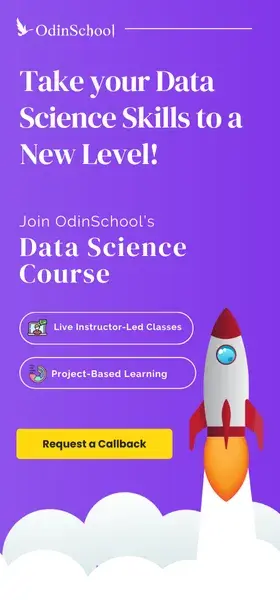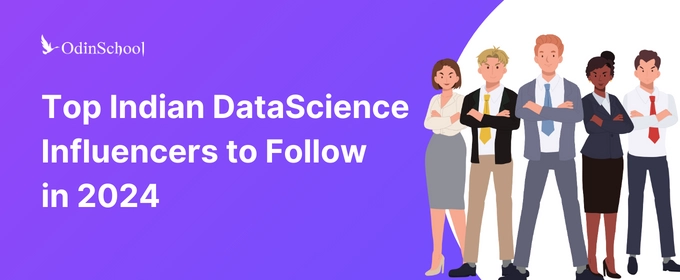Ace Your Data Science Interview | Exploring Roles
Summary
Working with data is a basic talent; but to be successful in this field, one needs to possess a variety of abilities. This opens up a lot of opportunities, when hunting for a Data Science job and it can become quite stressful.
Companies hire for a variety of data science positions, and each of these positions calls for a specific set of skills. Therefore, our goal is to explain what each data professional does and their responsibilities. We also explain some pro-tips to face a Data Science interview and how you can take the help of OdinSchool's Simulated Interview Tool to face the interviews.
Table of Content
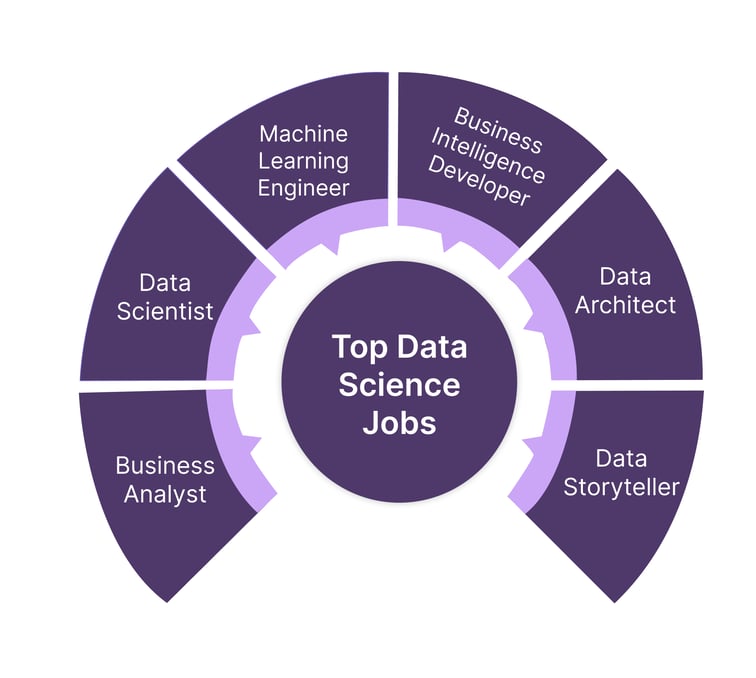
Many data science applicants are under the assumption that there is only one role in Data Science (Data Analyst) in the entire field which is just not true. Times have changed and now we have ‘n’ number of roles and responsibilities associated with Data Science. Some of them are as follows:
Business Analyst
A Business Analyst proposes solutions to companies and other organizations using data to help them make business decisions. An organization's IT procedures, organizational structures, or employee development are just a few of the areas in which a Business Analyst can find challenges. To share their results and support change implementation, they frequently collaborate closely with every level of the organizational structure.
Responsibilities:
-
Using SQL and Excel to dissect large data sets
-
Creating fiscal models for business
-
Understanding business strategies, goals, and conditions
-
Planning enterprise structure
-
Forecasting, budgeting, and performing both variance and fiscal analysis
Data Scientist
A Data Scientist uses data to study, explain, and support in the decision-making of businesses. Being a Data Scientist may be intellectually demanding, analytically fulfilling, and it can put you at the cutting edge of new technological developments. They frequently create predictive models for forecasting and analysing.
Responsibilities:
-
To gain insights, look for patterns and trends in datasets.
-
Create data models and algorithms to predict outcomes.
-
To enhance the quality of data or product offers, use machine learning approaches.
-
Communicate recommendations to other teams and senior staff
-
Deploy data tools such as Python, R, SAS, or SQL in data analysis
-
Stay on top of innovations in the data science field
Machine Learning Engineer
A crucial player on the data science team is a Machine Learning Engineer. Their objectives include researching, creating, and designing that underpins machine learning in addition to maintaining and improving the existing artificial intelligence systems.
Responsibilities:
-
Implementing machine learning algorithms
-
Running AI systems experiments and tests
-
Designing and developing machine learning systems
-
Performing statistical analyses
Business Intelligence Developer
A Business Intelligence Developer uses data to inform organizational decisions. He gathers and analyses information on a company's earnings, sales, market information, and customer engagement metrics.
Responsibilities:
-
Program tools and data models to help visualize or monitor data.
-
Find patterns in the data to signal a potential improvement in business practices
-
Visualize data in graphs and charts, to put reports together and present
-
Make recommendations to improve or grow the business as per their findings
Data Architect
The data management systems of an organization are conceptualized by a Data Architect. This involves developing a framework for data management that meets technological and business requirements while upholding data security and legal compliance.
Responsibilities:
-
Convert business needs into database, data warehouse, and data stream formats
-
Establish processes to guarantee data accessibility and accuracy
-
Create data architectures, including security, reference data, metadata, and master data, through analysis, planning, and definition
-
Coordinate with other departments to develop and put into practise data strategies, establish models, and evaluate the needs and objectives of shareholders.
-
Creation of application programming interfaces (APIs) for data retrieval
Data Storyteller
A Data Storyteller is a person who deals with complex data sets but when the analysis comes out, it is simple enough to understand by all the teams in a company. Data Storyteller explores the connection between visual aspects and data understanding,
Responsibilities::
-
Create compelling and useful data stories to share with key stakeholders to influence decisions by analysing data. Ensures the accuracy and quality of data.
-
Gather, analyse, and share marketing data and insights to enhance marketing performance.
-
Employ expertise in data administration, online analytics, campaign management, financial analysis, or data modelling.
-
Create long-term objectives and strategic strategies to guarantee ongoing profitable growth
Data Science Interview
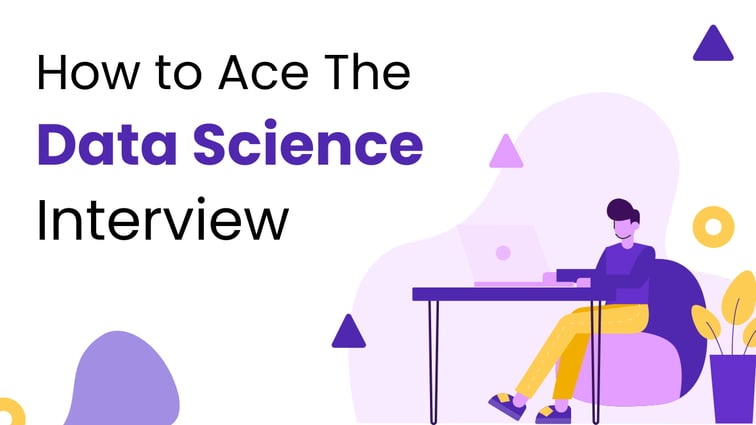
Here are a few important points one must remember before attending a Data Science interview,
Research the Company - If you want to predict the questions ahead and prepare for them, then the best place to start is by researching the role and the company. Frankly, this is applicable to every interview and just not Data Science.
Check out the company website, social media pages, and reviews, and even try speaking to people who already work there. The more one can learn about the work culture, the company’s values, and the methods and systems they use, the better you can tailor your answers and demonstrate that you are fully prepared.
Always be direct while answering and avoid beating around the bush - There are many applicants/professionals who think talking more is way more important than sounding right. However, it's always the other way round - Interviewers always want a precise answer if not a detailed one. Hence, in the pretext of attempting or providing a detailed answer, please do not sound gibberish.
If a question is unclear, clarify it - Most of the time, applicants do not ask the interviewer to repeat the question, if it's unclear for the fear of judgment. This fear leads to an ill formed question which does not have the right answer that of course will lead to an improper judgment. Hence, it is always advisable to get the question right before answering.
Have your post-interview questions ready - Though it’s important to be thinking about the questions you’ll have to answer, it’s also essential to have some questions ready that you will ask at the end of the interview. Many overlook this phase, but it is an excellent way to find the frequency of the interviewer and company. Some examples are,
-
On what parameters will an employee’s performance evaluated?
-
What are the priority projects I’ll be dealing with?
-
What is the company culture like?
Please write an email to thank the interviewer for the opportunity - This can create a positive impression - Most of the applicants forget all about the interview once it is done. However, one should always remember that it is the interviews which we think negatively of (one’s that did not offer a job) prepare us for the worst (biggest opportunity to learn). Hence, it is a good practice to email and thank the interviewer for the opportunity.
Focus on your grammar - Most of the techies think that it's okay to sound nonsensical till the time, answer is right. Having the right sentence structure is important and mind you - Its not important to have high ending words but right grammar.
Adding to the above tips to face the interview, we have collected some top technical Data Science questions which can be useful. Top Data Science Technical Interview Questions And Answers
Before planning to attend any interview, we also recommend going through OdinSchool’s simulated data science interview.
It only takes 30 to 35 minutes to complete the interview and you do not need a camera or microphone to attempt this interview. This interview is a mix of multiple choice questions and descriptive questions - Mixture of technical and behavioural questions. The answers will also be shared after completion of the interview for assessment and better preparation.
Final Thoughts
A candidate needs to focus on creating trust, and a hiring manager needs to find: the Ability to build and manage data science models, Believe that you are the right candidate who can work with minimum supervision, is Capable of accomplishing the data science task, and feel Dependent on you during the work. If you can meet all the criteria ,i.e. ABCD there is a greater chance of you getting selected. We hope this article brings light in to crack the desired Data Science interview.
If you wish to make a career in Data Science, then OdinSchool's Data Science Course is here for you. It is an intensive 6-month Data Science Bootcamp that comes with placement assistance. It is led by industry experts and offers an industry-vetted curriculum with a special focus on the most in-demand skills.

